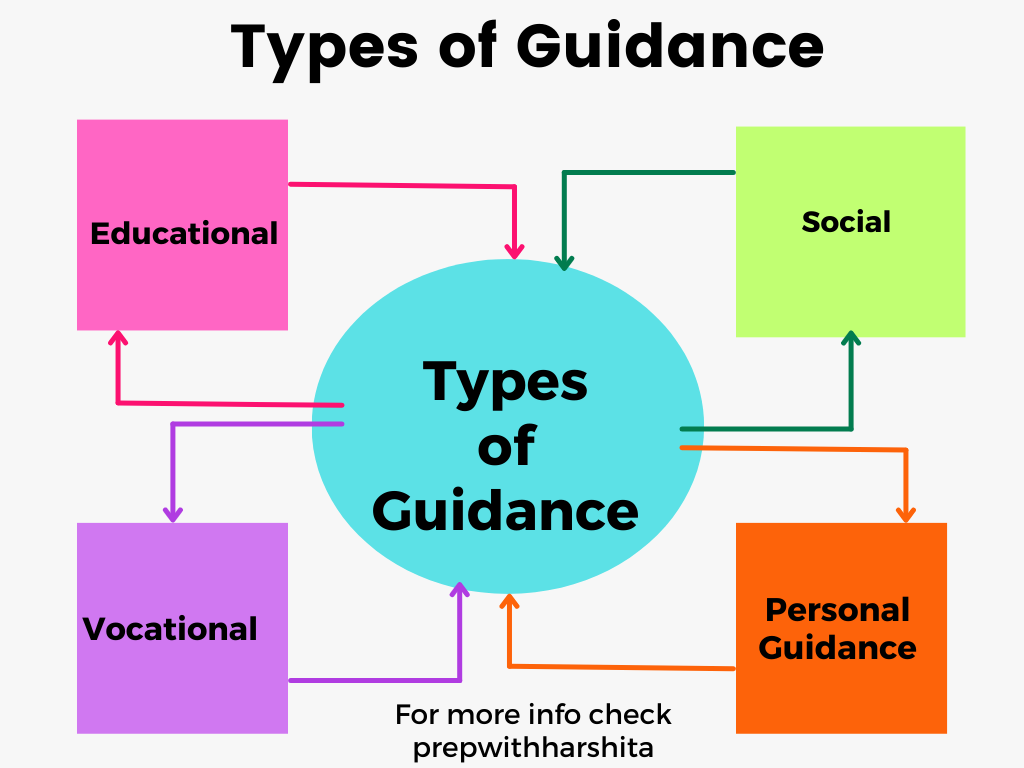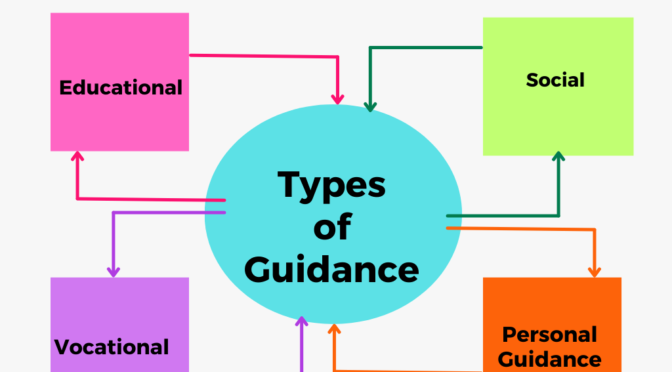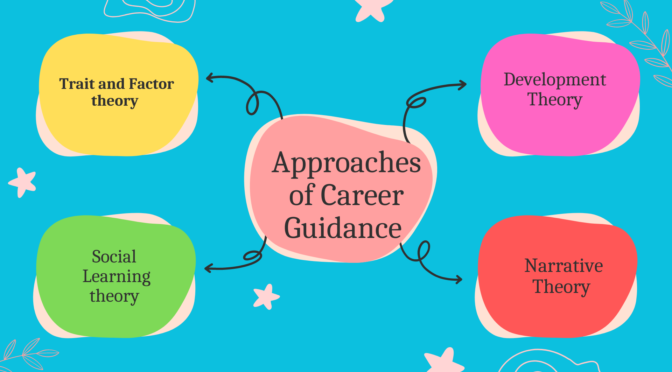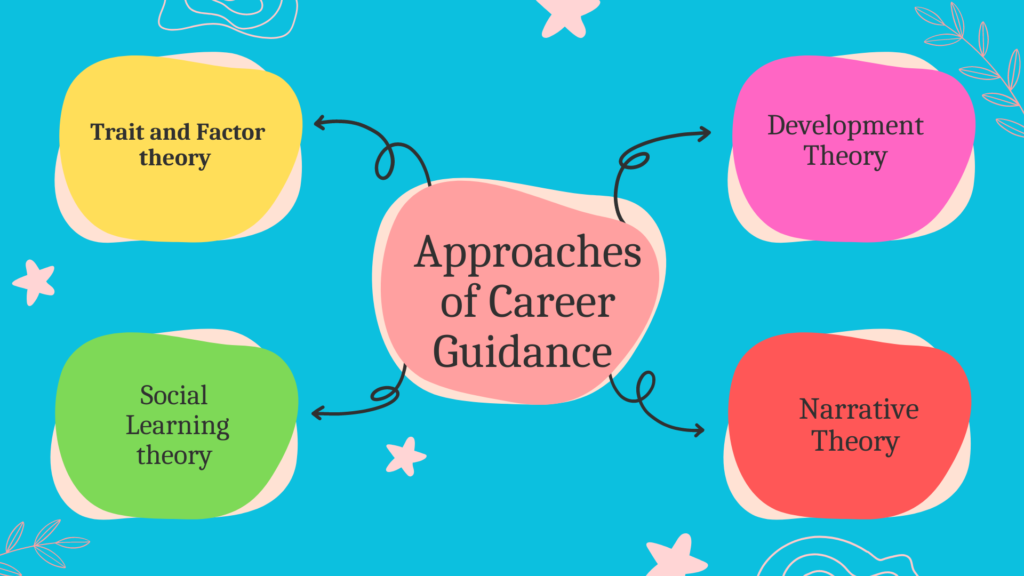There are several types of guidance that can be provided in different contexts, such as Educational, Vocational, Social and Personal Guidance.
- Educational Guidance: This type of guidance is designed to help students succeed academically. Educational guidance can include assistance with course selection, study strategies, time management, exam preparation, and career planning. Educational guidance can also include specialized support for students with learning disabilities, those who are struggling academically, or those who are transitioning from one level of education to another.
- Vocational Guidance: This type of guidance helps individuals make informed decisions about their career or job choices. Vocational guidance can include assistance with identifying career goals, exploring different career paths, developing job-search skills, creating resumes and cover letters, and preparing for job interviews. Vocational guidance may also involve identifying and addressing any gaps in a person’s skillset or education that may be preventing them from achieving their career goals.
- Social Guidance: This type of guidance focuses on developing healthy social relationships. Social guidance can include assistance with developing communication skills, building healthy interpersonal relationships, developing empathy and emotional intelligence, and conflict resolution. Social guidance may be particularly important for individuals who are struggling with anxiety, depression, or other mental health issues that may be impacting their ability to connect with others.
- Personal Guidance: This type of guidance focuses on helping individuals develop a better understanding of themselves and their goals. Personal guidance can include assistance with self-reflection, identifying personal values and priorities, developing mindfulness, and setting goals for personal growth. Personal guidance may also include counseling or therapy for individuals who are struggling with mental health issues or emotional challenges.
Overall, guidance can be an essential aspect of personal and professional development, and seeking guidance can help individuals achieve their goals and navigate challenges effectively.
Also Read : Approaches of Career Guidance

Also Visit : Prep with Harshita



